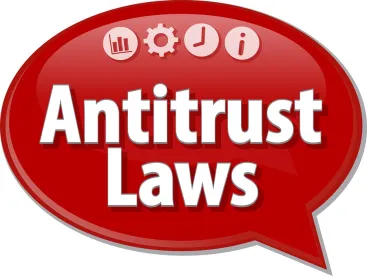A recent Department of Justice settlement highlights the Department’s intention to criminally prosecute companies that agree not to solicit or hire each other’s employees.
On April 3, 2018, the Department settled civil claims against Knorr-Bremse AG and Westinghouse Air Brake Technologies Corporation (“Wabtec”), two large rail equipment providers, as “part of a broader investigation . . . into naked agreements not to compete for employees, generally referred to as no-poach agreements,” said Assistant Attorney General Makan Delrahim. Mr. Delrahim added that “the unlawful no-poach agreements challenged today restrained competition for employees and deprived rail industry workers of important opportunities, information, and the ability to obtain better terms of employment.”
The settlement announcement did not disclose what fine, if any, Knorr-Bremse and Wabtec agreed to pay as part of the settlement. The Department’s most recent investigation into no-poach agreements, however, led to a 2010 private suit against six technology companies. Those companies ultimately paid $415 million in settlements.
The Knorr-Bremse and Wabtec settlement was the Department of Justice’s first action involving no-poach agreements since announcing in October 2016 that it would begin bringing criminal felony charges against culpable companies and individuals. (The Department has made an exception for violators that, like Knorr-Bremse and Wabtec, terminated their no-poach agreements before its announcement.) Since then, the Department has viewed no-poach agreements as eliminating competition in the same way as agreements to fix prices or allocate customers.
The Department of Justice’s new approach was “an earth shattering moment” for human resources departments, said Proctor & Gamble Cos.’s senior counsel, Joanna Neidermeyer at an American Bar Association meeting earlier this month. Neidermeyer said that “most HR professionals never thought this … could be considered hard core criminal conduct.”
Assistant Attorney General Delrahim hopes criminal enforcement will strengthen the Department of Justice’s bargaining position with alleged violators. Although civil antitrust liability can be proved by a “preponderance of the evidence,” the Department of Justice’s previous agreements to resolve civil claims required the Department to prove future misconduct under a much higher standard. “Parties know that,” Mr. Delrahim complained.
The Department of Justice’s settlement with Knorr-Bremse and Wabtec may reveal what businesses can expect in future enforcement actions. Under it, the Department can prove future violations by meeting the “preponderance of the evidence” standard. The settlement also requires Knorr-Bremse and Wabtec to terminate any other existing no-poach agreements, implement stringent compliance measures, and increase regulatory disclosures. These may be common features of agreements to resolve no-poach complaints from now on.
The Knorr-Bremse and Wabtec settlement leaves many specifics unresolved, including companies’ potential liability to individuals harmed by no-poach agreements. Former Knorr-Bremse and Wabtec employees have already filed several individual and class-action lawsuits, each alleging that the companies’ no-poach agreement depressed wages and limited professional opportunities.
Also unclear is precisely what kinds of underlying business arrangements can be used to justify a no-poach agreement. The Department of Justice’s initial October 2016 guidance stated that non-solicitation agreements that are part of a “legitimate joint venture,” and are “reasonably necessary to a larger legitimate collaboration between the employers,” are not illegal per se and therefore are not criminal. More recently, justice department official Marvin Price reiterated that companies may avoid liability if an agreement not to hire is restricted to companies engaged in a joint venture and the agreement is necessary for the joint venture to succeed. The department’s press release on the Knorr-Bremse and Wabtec explicitly stated that those companies’ no-poach agreement was “not reasonably necessary for a separate, legitimate business transaction or collaboration,” and that nothing in the agreement would prohibit a company from engaging in a similar agreement “that is ancillary to a legitimate business collaboration.”
While Department of Justice guidance in this area is scant, one option available to companies is to engage in the Department of Justice or Federal Trade Commission Business Review Process. The Business Review Process allows companies to ask agencies for advice on the possible competitive impact from proposed conduct, allowing in-house counsel to get more details about the types of no-poach agreements that could be justified.





 />i
/>i

